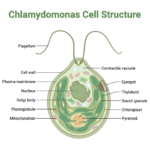AQA GCSE Biology 17 Views 1 Answers
Sourav Pan🥇 GoldNovember 13, 2024
What is the role of antitoxins in the immune system’s defence against disease?
What is the role of antitoxins in the immune system’s defence against disease?
Please login to save the post
Please login to submit an answer.
Sourav Pan🥇 GoldMay 15, 2025
Antitoxins play a vital role in the immune system’s defense against disease by neutralizing toxins produced by harmful bacteria. Here’s an overview of their function and significance:
Definition of Antitoxins
Antitoxins are specific antibodies produced by the immune system in response to toxins released by pathogens, particularly bacteria. They bind to these toxins, effectively neutralizing their harmful effects and preventing them from causing damage to the body’s cells and tissues.
Mechanism of Action
- Binding to Toxins: Antitoxins specifically recognize and bind to the molecular structures of toxins, which are often proteins or other harmful substances secreted by bacteria. This binding prevents the toxins from interacting with host cells and exerting their damaging effects.
- Inactivation: Once bound, antitoxins can inactivate the toxins, rendering them harmless. This is crucial in preventing diseases caused by bacterial toxins, such as diphtheria and tetanus, where the toxins are primarily responsible for the symptoms and damage associated with the infection.
- Facilitating Clearance: By neutralizing toxins, antitoxins also help mark them for destruction by other components of the immune system, such as phagocytes. This enhances the overall immune response and aids in clearing both the toxins and the pathogens that produce them from the body.
Role in Disease Prevention
- Protection Against Specific Diseases: Antitoxins are particularly important in defending against diseases caused by toxin-producing bacteria. For example:
- Diphtheria: Caused by Corynebacterium diphtheriae, which produces a potent toxin that can cause severe respiratory issues and damage to heart and nerve tissues.
- Tetanus: Caused by Clostridium tetani, whose toxin leads to muscle stiffness and spasms.
In these cases, antitoxins can be administered as part of treatment protocols to neutralize the effects of the toxins.
- Immunization: Vaccination strategies often involve introducing a harmless form of a toxin (toxoids) into the body to stimulate an immune response that includes the production of antitoxins. This prepares the immune system to respond more effectively if exposed to the actual toxin in the future
0
0 likes
- Share on Facebook
- Share on Twitter
- Share on LinkedIn




